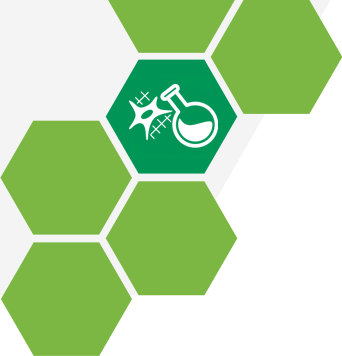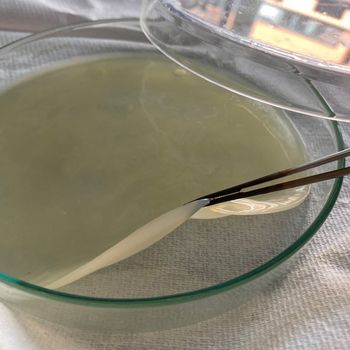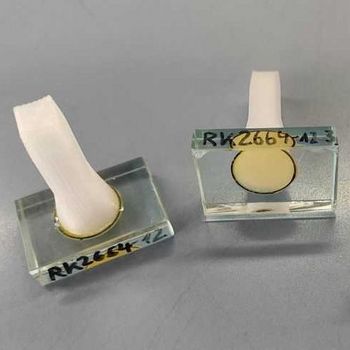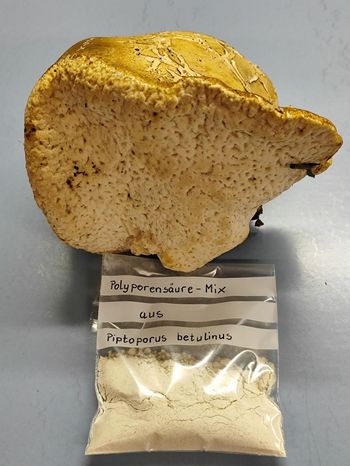The German and international sustainability strategy (DNS) of the Federal Republic of Germany highlights the importance of sustainable processes independent of fossil fuels. INNOVENT is committed to developing new, innovative and sustainable processes and applications.
We currently focus on four areas of expertise:
- Microalgae
- Bacterial cellulose
- Bio-based adhesives and hotmelts
- Natural products
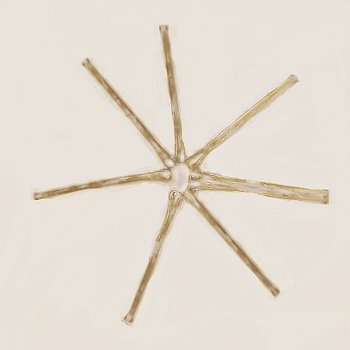
Microalgae are photosynthetic organisms that can sustainably produce a variety of usable ingredients using solely sunlight, CO2 and a few nutrients. Our department is able to analyze different ingredients of algae biomass (lipids, peptides, carbohydrates and bioactive substances), and to contribute to various research approaches, such as the formation of pigments, developments for cosmetic applications and further identification and isolation of bioactive ingredients.
Cellulose is one of the most common natural polymers. The conventional production of cellulose involves active felling of trees and cultivation of monocultures to meet the increasing demand, which has a negative ecological impact. This causes valuable natural space to be lost to preserve biodiversity. Bacterial cellulose production takes place in fermenters, which require a significantly smaller area to yield the same amount as plant-based cellulose. It also shows better chemo-physical properties and is purer than plant cellulose due to the absence of lignin or hemicellulose impurities. In this research field, we investigate the use of side streams for cellulose production, but also various possible applications in the electrical, pharmaceutical, packaging, cosmetics and textile industries.
Hotmelt (HM) adhesives find application in the areas of consumer goods, packaging, construction, transportation, electronics, healthcare, bookbinding and furniture manufacturing. The enormous potential of these adhesives is obvious due to these various areas of application. Our bio-based adhesives are not solvent-based, which results in advantages such as wide applicability, recyclability, lower costs for transport and storage and less harmful processing. They can consist of up to 97 % of natural ingredients, making them independent of fossil fuels and biocompatible. They exhibit biological degradation behavior and thus contribute to resource and environmental conservation and the circular economy.
The Biomaterials working group has many years of experience in producing extracts from biomasses such as plants, fungi and fruits. The isolation of dyes from walnuts or mushrooms can be used to color textiles (bamboo, cotton, wool, silk) and wood. In addition, biologically active metabolites can be extracted from the biomass and their antibacterial and anti-inflammatory properties can be characterized (e.g. polypore acids from birch porling). Modern equipment and procedures are available for comprehensive analyses of bioactive substances.



